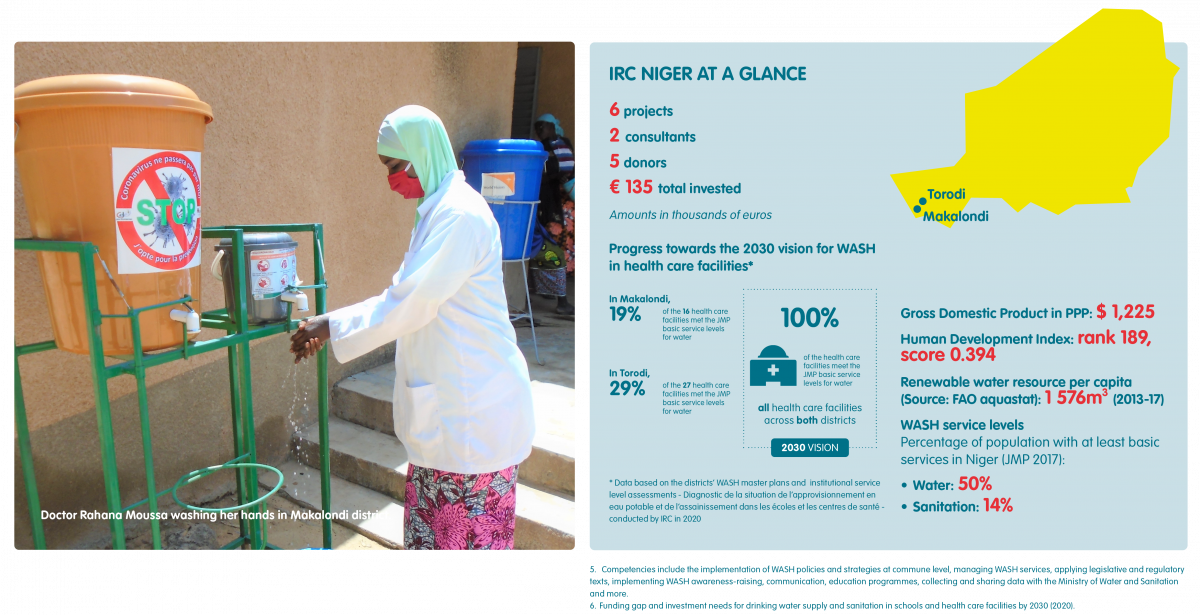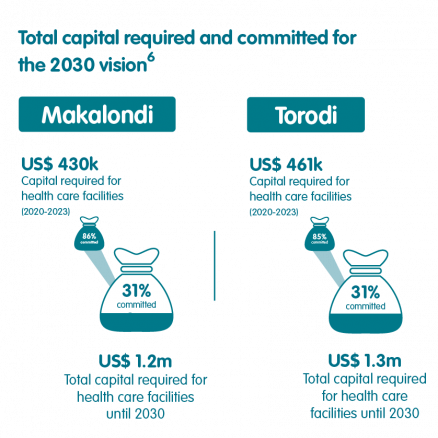
What impact did we have in our focus countries in 2020? Sharing highlights from IRC's Annual Report.
Published on: 12/09/2021
"One of the major positive points related to this collaboration is the development of our communal strategic plan for water and sanitation. This master plan has allowed us to know our current situation and what needs to be done in order to reach SDG 6 by 2030 at the commune level. IRC brings us the expertise in the WASH field that we really need. For example, our commune is now able to perform seven of the eleven powers or tasks transferred by the state to the communes."
- Moumouni Hassan, general secretary of the local government of Torodi.2
While political buy-in and collaboration in Makalondi and Torodi districts are supporting the increased alignment of strategies, plans and actions, the fragility of the context in Niger poses great challenges. The country suffers from climate and humanitarian disasters, including an insurgency which has led to instability and increased violence in the region. In 2020, 94 of the 250 schools in the two districts were closed due to security issues. But we were able to measure WASH progress in the 156 schools still open to students, and 27 had basic water access and 20 had basic sanitation services.
We are also making progress in understanding and strengthening local and national systems. For example, stories and comprehensive data collected in the districts triggered joint advocacy and national level interest. We have also helped the districts conduct finance studies to better understand the costs and gaps related to their 2030 vision. In 2021, we will continue to support the districts with identifying reliable sources of finance for direct support and systems strengthening.
Find out more about our work in Niger

Footnotes
5. Competencies include the implementation of WASH policies and strategies at commune level, managing WASH services, applying legislative and regulatory texts, implementing WASH awareness-raising, communication, education programmes, collecting and sharing data with the Ministry of Water and Sanitation and more.
6. Funding gap and investment needs for drinking water supply and sanitation in schools and health care facilities by 2030 (2020).